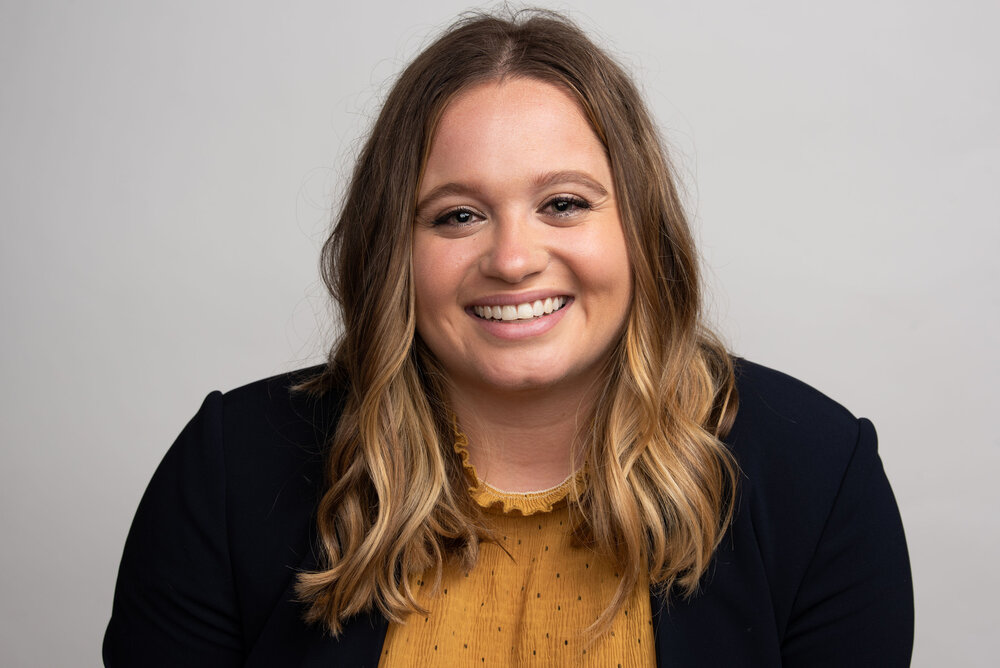If it is your first time looking for a therapist, you probably have many questions. If you have been to therapy before, you may be looking to find a new mental-health provider that fits your criteria better. You may be wondering, “where do I even start?” This article can help clear up some of the confusion you are facing. Follow these tips to make this process as smooth and question-free as possible.
First: Reflect on Your Goals for Therapy
The first step in finding a therapist is evaluating your situation and the reasons you want to start therapy. Ask yourself these questions:
-
Is there a specific life event I’d like to talk about?
-
Is there a specific concern I would like to treat?
-
Who do I feel most comfortable talking to (someone who is a man, woman, non-binary, part the LGBTQ+ community, an ally, etc.)?
Is there a specific life event I’d like to talk about?
When thinking about starting therapy, is there an occurrence that sticks out to you? Did a life event (e.g. a breakup, a death, a scarring tragedy, etc.) happen that left a lasting impact on you? If you said yes to either of these questions, you deserve support! You may be facing anxiety, stress, sadness, and fear as a result of these instances. Your emotions are important, and a therapist can supply you with the tools needed to tackle these concerns.
Is there a specific concern I would like to treat?
Why do you want to meet with a therapist? Think of the reasons you want to go. Some can be:
-
I want to improve my overall mental wellness.
-
I want to work on my self-esteem and believe in myself more.
-
I’ve been feeling sad or anxious lately and don’t know why – I want to explore this further.
-
I want to improve my relationship with my partner(s).
-
Controlling my emotions feels difficult at times. I want to improve my ability to handle my feelings and understand them.
When you go to therapy, a therapist will assess your situation and create an effective plan to help you. If you have been to a therapist before, you may have already received a diagnosis. Common reasons people seek therapy are:

Depression and Anxiety
People with depression experience sadness, feelings of emptiness, negative thoughts, and more. People with anxiety face constant stress that consumes their minds. The anxiety can get so bad that it starts affecting them physically. People with anxiety may experience a racing heartbeat, trembling, and dizziness. Both of these disorders can be crippling and prevent people from living their daily lives.
Obsessive-Compulsive Disorder (OCD):
People with Obsessive-Compulsive Disorder (OCD) deal with constant worries, intrusive thoughts, and the continuous need to perform compulsions. Compulsions are actions people with OCD believe they need to do so that their intrusive thoughts won’t become reality. For example, someone thinks they need to turn the light switch on and off repetitively, or something horrible will happen to their loved one.

Perfectionism and People Pleasing
People who struggle with perfectionism are extremely hard on themselves – they feel a constant need to act without flaws and perfectly perform. If they fail, they beat themselves up and feel awful.
People-pleasers focus heavily on making others happy. These people struggle with saying no to others. Many times the constant “yes” from people-pleasers affects their own lives. They are too busy helping others that they don’t have time to complete their own tasks. People-pleasers will do things that may make them uncomfortable in fear of upsetting others. Often, people get so used to people-pleasers saying “yes” that they stop asking and just assume the answer will be the same.

Caity Thompson LMHC
Our founder, Caity Thompson LMHC, helps her clients deal with perfectionism, self-doubt, and people-pleasing tendencies. Caity was a professional athlete. The pressure of her sports career led Caity to deal with many of the challenges her clients struggle with. Caity has a unique understanding of her client’s experiences and a dedication to providing effective therapy.
Eating Disorders and Body Issues
People who deal with eating disorders struggle to feel comfortable in their bodies. According to the APA, people can experience:
-
Binge Eating: People with this disorder binge (eat an excessive and uncontrollable amount).
-
Bulimia nervosa: People with bulimia nervosa usually binge and purge after.
-
Anorexia nervosa: People with anorexia nervosa struggle with being able to eat. This struggle causes them to eat very little or not at all.
People also struggle with body dysmorphia. This disorder causes people to fixate on a certain part of their body. For example, someone may be self-conscious of a birthmark on their face and consider it a “flaw”. They obsess over how people perceive their “flaw” all day and experience intense stress over this. In extreme cases, people feel so horrible about themselves they fear leaving the house and interacting with others.

Elle Laub LMHC
One of our TMH therapists, Elle Laub LMHC, specializes in eating disorders, disordered eating patterns, and working through your relationship with your body and self-esteem. Elle takes a Health At Every Size-oriented and anti-diet approach and can help you work through recognizing maladaptive behavioral patterns and gaining emotional tolerance.

Relationship and Family Concerns:
Humans are social beings – our lives are full of relationships and connections with others. Sometimes these connections can be challenging to manage. Fights happen, arguments take place, grudges develop, and relationships become affected. Therapy can help people better their connections with others – romantic, friendly, or familial.
Jennie Bokser LMHC, our third therapist in our TMH team, works with individuals and couples. She specializes in helping adults cope with anxiety, racing thoughts, and stress. Jennies supports clients with issues involving relationships, family conflict, and feeling comfortably attached to others.
The Takeaway from this section…
When looking for a therapist, remember to identify what you want to tackle in your sessions. Different therapists specialize in certain areas. Therapists will usually list their specialties on their website or in a blurb on platforms like Psychology Today or Zencare This information can assist you in finding a therapist that is right for you and that can help you with your specific concerns.
Who do I feel most comfortable talking to (someone who is a man, woman, non-binary, part the LGBTQ+ community, an ally, etc.)?
Many people feel comfortable sharing their emotions and being vulnerable with someone they can relate to – this is something to consider when looking for a therapist. For example, a person who identifies as queer may feel most comfortable talking to an LGBTQ+ member or an identified ally. Is there a certain therapist that you would prefer to see, or is any therapist that provides the support you need ok with you?

Second: Screen the Therapists
Many people have consultations with therapists to determine if they would work well together. Screening involves asking the potential therapist questions to see if they line up with your criteria. Some questions that might be helpful to ask are:
-
Are you able to help me with (your particular disorder/concern)?
-
What populations do you have experience helping?
-
What type of therapy models do you practice? Can you explain a little about each one?
-
Do you take insurance? If so, what type of insurance do you accept? What is your cost per session? What is your copayment (copay)?
-
If you are LGBTQ+: Do you provide LGBTQ+ affirmative therapy? Can you support me with any personal concerns involving my LGBTQ+ experience (family issues, romantic relationships, discrimination)? Are you an ally?
-
If you are BIPOC: Are you anti-racist? Will you be able to support me with any specific concerns that come with being BIPOC (racism, discrimination, microaggressions, etc.)?
Third: Review Your Finances
As mentioned in the previous step, ask the therapist what insurance/coverage they take. If you like a specific therapist, but they do not accept your insurance/don’t take any insurance, weigh your options. Will you be able to afford their services?
Fourth: Pick Between Online or In-Person Therapy

During this pandemic, you may have seen that more and more people attended their therapy meetings online. Online therapy provides an accessible alternative to in-person sessions. Online therapy has some great pros. One awesome advantage is that you can talk with a therapist anywhere – people can be in the comfort of their homes while receiving the support they need.
In-person therapy allows you to sit face-to-face with a mental health provider. You may feel more engaged talking to someone instead of a computer screen. In these uncertain times, check to see if the therapist you are interested in does in-person therapy or will offer it in the future. With either option you go with, you will still receive professional support and treatment.
Fifth: If all else fails, repeat steps 1, 2, 3, and 4
You may feel overwhelmed when looking for a therapist. Always remember that no decision you make is final! Even if you start going to a therapist, attend a few sessions, and realize that it isn’t working out for you, that is OK! One therapist does not represent every mental health provider out there. You can always try another therapist and see how it goes! When all else fails – repeat steps 1, 2, 3, and 4!
The therapists at TMH Counseling want to provide you with the support you need! Caity, Elle, and Jennie are trained professionals that strive to assist their clients with any concerns they face. To learn more about our therapists, visit Meet Our Therapists page.


0 Comments